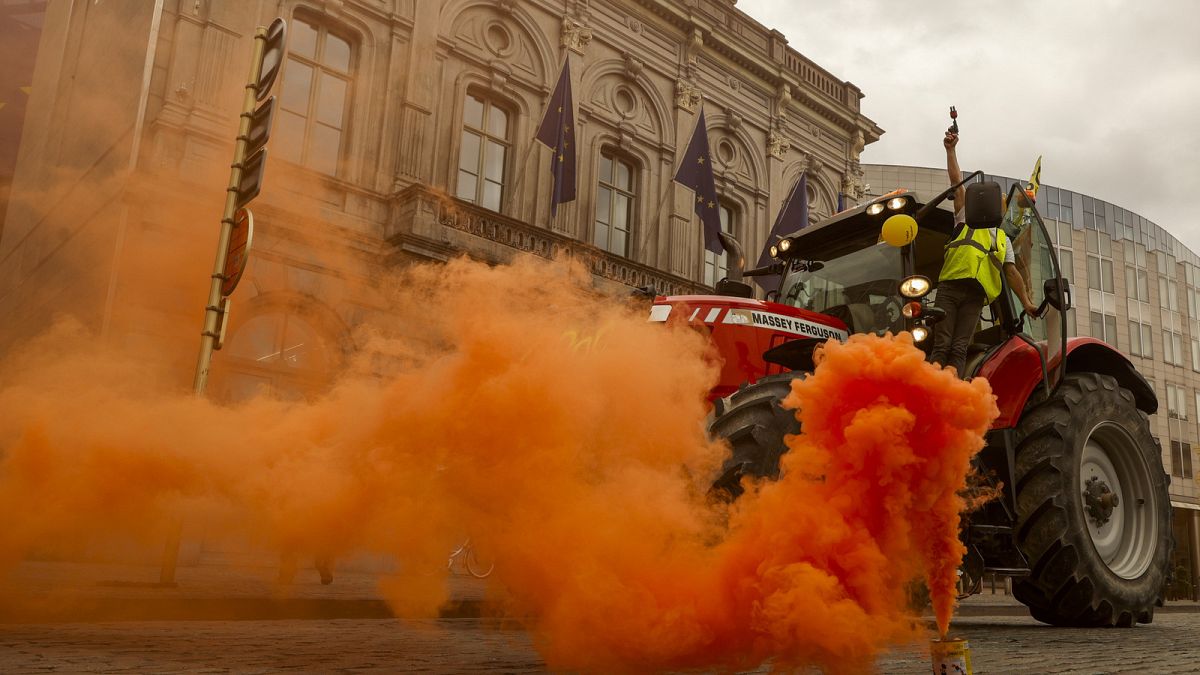
In a field outside of the Belgian capital, Brussels, farmers gathered to protest against European environmental regulations, with demonstrators coming from Poland, the Netherlands and France.
Organisers had expected a significant turnout for this final protest before the EU elections, despite the fact that Brussels recently eased environmental demands in its common agricultural policy (CAP).
As the EU struggles to hit its climate goals, European farmers believe these concessions do not go far enough to protect their industry.
“There are a few small developments that we are obliged to note. But for the moment, at this stage, they add nothing at an economic level,” said Christian Convers, general secretary of farmers union, Coordination Rurale.
Despite their ongoing anger, only around 2,000 people attended the protests, far from the 15,000 to 20,000 organisers had expected.
One of the possible reasons for this was the support given to demonstrators by right-wing politicians and groups.
Sieta van Keimpema, a spokesperson for the organisation Farmers Defence Force, denied the allegations.
“This is a lie that we have heard over and over again. There is no politics in this protest and there is nothing extreme but the people who lie,” she said.
Van Keimpema said the protest was organised and financed by agricultural groups, which had demanded that participants avoid violence and abstained from drinking alcohol at the event.
But the list of speakers showed a different picture, with speeches from politicians from far-right parties, including the Flemish Vlaams Belang and the Polish PiS.
Copa-Cogeca, the EU’s main farmers’ organisation, dissociated itself from the event and claimed that none of its members took part.
The European Greens also raised concerns saying far-right organisations are capitalising on issues raised by farmers.
“The far-right has been feeding farmers the lie that Europe, and the Green Pact, is to blame for their hardship,” said the party’s lead candidate and MEP Bas Eickhout.
He said the Greens were willing to work with farmers who “operate within the framework of democracy”.
The protests, which began during the winter, have pressurised the European Commission into changing the CAP and dropping legislation over pesticide use.





